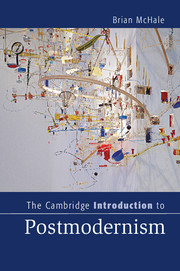Book contents
2 - Big Bang, 1966
Published online by Cambridge University Press: 05 July 2015
Summary
Crash
“Oh Mama, can this really be the end,/To be stuck inside of Mobile with the Memphis blues again?” Bob Dylan sings in one of his very greatest songs, released in 1966 on his ambitious double album Blonde on Blonde. The condition captured by the song, of being at an impasse, “stuck” in a place that is itself (punningly) “mobile,” seems strangely at odds with Dylan's own hectic mobility over the previous year or so, during which he had literally electrified folk music at the Newport Folk Festival, toured the world relentlessly with his rock band (soon to be known simply as The Band), and recorded three landmark albums – Bringing It All Back Home and Highway 61 Revisited in 1965, then Blonde on Blonde – that not only propelled folk music into folk-rock but also made as strong a case as any to date for regarding rock music as art. Yet the immobilized blues singer of “Stuck Inside of Mobile” can't escape, can't even get a message through, can't hide, has no sense of time, and wants out (Marqusee, 2003, 194–5):
And here I sit so patiently
Waiting to find out what price
You have to pay to get out of
Going through all these things twice.
Oh Mama, can this really be the end …
(Dylan, 1974, 38)Dylan in 1996 seems so much an innovator, poised at the very beginning of something new, that one can't help but wonder what possible end he could be worrying about: the end of the tour? the end of the road? the end of the world? And what is it exactly that he wants to avoid repeating? Himself?
Ends and beginnings also preoccupy the other rock ensemble at the height of its powers in 1966 – The Beatles. Consider “Tomorrow Never Knows,” the final track of The Beatles' own highly innovative album of that year, Revolver, the recording on which they invented not only the concept album but also psychedelic music (unless that actually happened on their single “Rain,” recorded during the same sessions; LeBlanc, 2002, 202).
- Type
- Chapter
- Information
- The Cambridge Introduction to Postmodernism , pp. 22 - 61Publisher: Cambridge University PressPrint publication year: 2015



